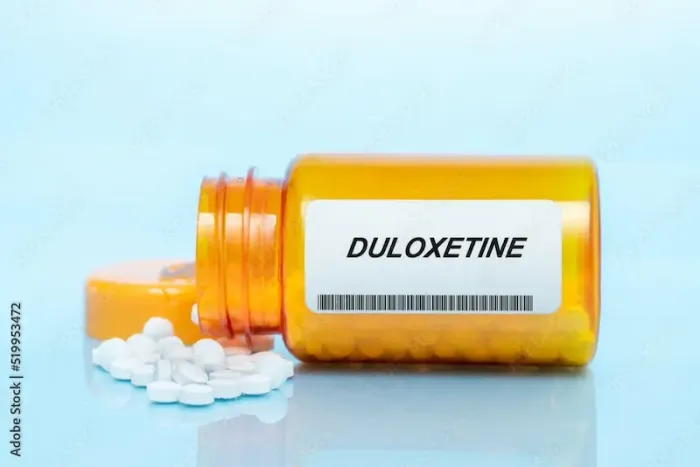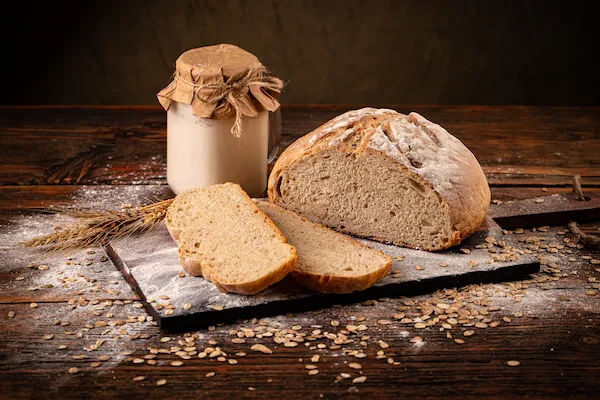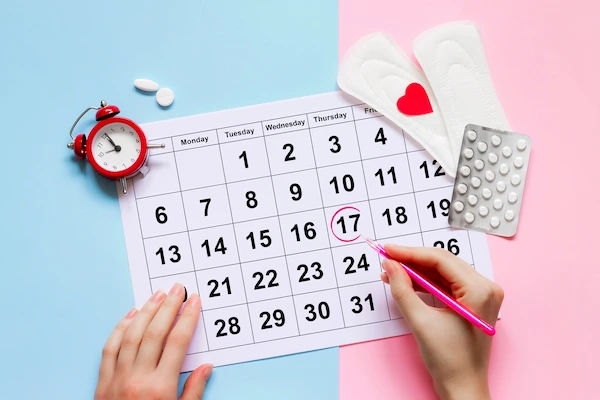Foods to Avoid When Taking Duloxetine
Learn duloxetine food interactions: what to avoid, what’s safe, and smart antidepressant diet tips. Alcohol, supplements, and everyday foods explained.


Introduction: Why this matters
Duloxetine (brand name Cymbalta) is a commonly prescribed antidepressant used to treat depression, anxiety, nerve pain, and fibromyalgia. Understanding how everyday meals, drinks, and supplements may affect your medicine helps improve comfort, reduce side effects, and support treatment success. The reassuring news: there are very few true duloxetine food interactions. Still, certain choices—especially alcohol and some supplements—deserve attention because they may affect safety or increase side effects.
This guide shows you exactly which foods and supplements to be cautious with, plus how to build a supportive antidepressant diet.
Consult a Top General Practitioner for Personalised Advice
At a glance – duloxetine food interactions (quick list)
• Alcohol: Avoid when possible. Both alcohol and duloxetine are processed through the liver, and using them together increases the risk of liver strain and sedation. Even moderate drinking may intensify dizziness, delayed reaction time, or emotional blunting.
• Herbal/supplement cautions: Avoid St. John’s wort, 5-HTP, and tryptophan, because combining these with duloxetine may raise serotonin levels too high, increasing the risk of serotonin syndrome, a rare but serious condition. Supplements like SAMe, fish oil, vitamin E, and turmeric in high doses may increase bleeding risk, so confirm with a doctor before using them regularly.
• Caffeine: Generally safe in moderate amounts. If you notice increased anxiety, jitteriness, stomach upset, or trouble sleeping after caffeine, reduce intake. Duloxetine can already increase alertness for some people, and caffeine may amplify that effect.
• Grapefruit: Not known to interact with duloxetine. Grapefruit affects certain medications metabolised through CYP3A4, but duloxetine uses different pathways.
• Meals: Duloxetine can be taken with or without food. If you experience nausea, taking it with a small snack (yoghurt, crackers, banana) often helps.
• General diet: A balanced, Mediterranean-style pattern—plenty of vegetables, whole grains, lean proteins, and healthy fats—supports steadier energy and mood, making it easier to maintain consistency with the medication.
Alcohol and duloxetine – a risky combination
Alcohol is the biggest “do not” when taking duloxetine. Let us see why:
Why alcohol matters
• Liver strain
o Duloxetine can, rarely, affect liver enzymes.
o Alcohol increases liver workload and the risk of liver injury.
• Sedation and dizziness
o Alcohol and duloxetine can both cause sleepiness.
o Together, they can impair reaction time, coordination, and judgment.
• Mood and sleep disruption
o Alcohol may worsen anxiety or depression.
o Drinking can interfere with sleep quality, counteracting the benefits of treatment.
What to do instead
• Choose non-alcoholic alternatives such as sparkling water with citrus, herbal teas, or alcohol-free beer/wine.
• If you consumed alcohol accidentally:
o Avoid further drinking.
o Seek medical advice if you notice:
- Yellowing of skin or eyes
- Dark urine
- Extreme tiredness
- Pain in the upper right abdomen
Supplements and herbs to avoid or discuss first
Some supplements interact with antidepressants—including duloxetine—especially those affecting serotonin or bleeding risk. These include:
Avoid these (unless clinically cleared)
• St. John’s wort
o Raises serotonin levels and increases the risk of serotonin syndrome.
• 5-HTP and L-tryptophan
o Serotonin precursors that can amplify duloxetine’s effect.
Signs of serotonin syndrome may include sweating, agitation, fast heart rate, confusion, trembling, or muscle rigidity. This is a medical emergency.
Use only under medical guidance
• SAMe (S-adenosylmethionine)
o May influence serotonin and mood; requires clinician approval.
• High-dose supplements with mild blood-thinning effects, such as:
o Fish oil
o Ginkgo
o Garlic
o Ginger
o Turmeric/curcumin
• These supplements may increase bleeding risk, particularly if you also use:
o Aspirin or NSAIDs (ibuprofen, naproxen)
o Anticoagulants (blood thinners)
General supplement tip
• Bring an updated list of supplements, vitamins, and medications to medical appointments.
Caffeine and stimulants – fine in moderation
Here is the expanded section with ~50 extra words added, keeping the same structure and UK English:
Caffeine and stimulants – fine in moderation
There is no major food–drug interaction between duloxetine and caffeine. However, duloxetine can cause:
• Nervousness
• Faster heart rate
• Sleep changes
Because caffeine is a stimulant, it may intensify these effects in some people, especially when duloxetine is first started, the dose is increased, or if you are naturally sensitive to caffeine. Some people notice that even small amounts of caffeine make them feel more “on edge” or disrupt their sleep when they are adjusting to duloxetine.
Practical tips
• Keep coffee and tea to moderate amounts.
• Avoid energy drinks.
• Stop caffeine by early afternoon if you struggle with sleep.
• If jittery, reduce caffeine for a week and monitor improvement.
• Pay attention to hidden caffeine sources: chocolate, pre-workout drinks, and some pain relievers.
Grapefruit and citrus – generally safe with duloxetine
Many medicines interact with grapefruit, but duloxetine is not known to be one of them.
• Duloxetine is processed mainly via CYP1A2 and CYP2D6 enzymes.
• Grapefruit typically affects different metabolic pathways, meaning it does not significantly change how duloxetine is broken down in the body.
Grapefruit, oranges, lemons, and other citrus fruits are generally safe to include in your diet when taking duloxetine. However, if you take other medicines (such as certain statins or calcium channel blockers) that require avoiding grapefruit, continue following that instruction. When in doubt, check with your pharmacist or clinician.
Bleeding risk and your diet
Duloxetine may increase bleeding risk, especially when combined with:
• Aspirin
• Ibuprofen, naproxen (NSAIDs)
• Blood thinners
Food-related considerations
• Normal cooking amounts of garlic, ginger, or turmeric are safe.
• Avoid concentrated supplements or high-dose extracts unless discussed with your clinician.
Signs to watch for
• Unusual bruising
• Nosebleeds
• Black/tarry stools
• Vomiting blood
Seek urgent medical care if these occur.
Meal timing, nausea, and stomach comfort
Nausea can occur, especially when starting duloxetine.
Tips that help
• Take the dose with food if nausea appears.
• Avoid greasy, heavy, or spicy foods until your stomach settles.
• Eat smaller, frequent meals if your appetite is reduced.
• Sip fluids throughout the day; ginger and peppermint tea may help.
• If constipation occurs:
o Increase fibre (oats, beans, berries, vegetables).
o Stay hydrated.
o Incorporate gentle daily movement.
Building a supportive antidepressant diet
The goal is to support your brain, mood, and overall well-being. It includes:
Aim for a balanced plate
• Vegetables and fruits
o Provide antioxidants, vitamins, and fibre.
• Whole grains
o Support steady energy and blood sugar balance.
• Lean proteins
o Fish, eggs, beans, tofu, lentils, poultry.
• Healthy fats
o Olive oil, nuts, seeds, and oily fish such as salmon and sardines.
• Fermented foods
o Yoghurt with live cultures, kefir, sauerkraut, and kimchi.
Lifestyle add-ons
• Hydration: Dehydration can worsen fatigue and headaches.
• Sleep routine: Consistent bed/wake time improves mood stability.
• Movement: Even a 10-minute walk can lift mood and reduce tension.
Salt, blood pressure, and other health conditions
The influence of salt, blood pressure and other health condition includes:
Blood pressure
• Duloxetine can slightly raise blood pressure.
• Moderate salt intake and monitor readings if you already have hypertension.
Blood sugar
• If diabetic, monitor glucose during dose changes, as appetite or eating changes can affect blood sugar.
Liver health
• Avoid alcohol completely.
• Extra monitoring may be needed if you have past liver concerns.
What to do if you’re unsure about a food or supplement
If you are unsure, then:
• Ask your pharmacist for quick guidance.
• Keep a note of your medicines and supplements on your phone.
• Introduce new foods slowly and observe how you feel.
Key takeaways – duloxetine food interactions
The key takeaways include:
• Avoid alcohol due to liver strain and sedation.
• Be cautious with supplements:
o Avoid St. John’s wort, 5-HTP, and tryptophan.
o Discuss SAMe and high-dose fish oil, garlic, ginger, and turmeric.
• Grapefruit is generally safe.
• No strict diet required—focus on a balanced Mediterranean-style pattern.
Conclusion
Duloxetine does not require a highly restrictive diet, but a few key choices help keep you safe and comfortable. Avoid alcohol completely and be cautious with supplements that affect serotonin or bleeding risk. A Mediterranean-style diet that includes whole foods, steady hydration, and mindful caffeine intake can support mood, digestion, and overall well-being. Small daily choices—what you eat, drink, and take as supplements—make a meaningful difference in how duloxetine works for you.
Consult a Top General Practitioner for Personalised Advice
Consult a Top General Practitioner for Personalised Advice

Dr. Ritesh Motghare
General Practitioner
18 Years • MBBS PGCDM
Nagpur
HEALTH CENTRE VNIT NAGPUR, Nagpur

Dr. Pankaj Tripathi
General Practitioner
20 Years • MBBS, MD Pathology
Lucknow
Best Diabetologist Clinic, Lucknow

Dr. Avinash Pasuparthy
General Practitioner
5 Years • MBBS
Visakhapatnam
Apollo Clinic Vizag, Visakhapatnam

Dr. Vivek D
General Physician
4 Years • MBBS
Bengaluru
PRESTIGE SHANTHINIKETAN - SOCIETY CLINIC, Bengaluru

Dr Syed Mateen Pasha
General Physician
2 Years • MBBS
Bengaluru
PRESTIGE SHANTHINIKETAN - SOCIETY CLINIC, Bengaluru
Consult a Top General Practitioner for Personalised Advice

Dr. Ritesh Motghare
General Practitioner
18 Years • MBBS PGCDM
Nagpur
HEALTH CENTRE VNIT NAGPUR, Nagpur

Dr. Pankaj Tripathi
General Practitioner
20 Years • MBBS, MD Pathology
Lucknow
Best Diabetologist Clinic, Lucknow

Dr. Avinash Pasuparthy
General Practitioner
5 Years • MBBS
Visakhapatnam
Apollo Clinic Vizag, Visakhapatnam

Dr. Vivek D
General Physician
4 Years • MBBS
Bengaluru
PRESTIGE SHANTHINIKETAN - SOCIETY CLINIC, Bengaluru

Dr Syed Mateen Pasha
General Physician
2 Years • MBBS
Bengaluru
PRESTIGE SHANTHINIKETAN - SOCIETY CLINIC, Bengaluru
More articles from General Medical Consultation
Frequently Asked Questions
Q.Can I drink coffee while taking duloxetine?
Yes, in moderation. Caffeine does not directly interact, but too much may worsen anxiety or insomnia.
Q.Is grapefruit safe with duloxetine?
Yes. Grapefruit is not known to interact with duloxetine unless you take an additional medication that does.
Q.Can I drink alcohol on duloxetine?
A.No. Alcohol increases liver stress and sedation, and may worsen mood.
Q.Do I need a special diet on duloxetine?
A.No restrictive diet is required. A Mediterranean-style eating pattern is ideal.
Q.Which supplements should I avoid?
Avoid St. John’s wort, 5-HTP, and tryptophan. Discuss high-dose fish oil, garlic, ginger, or turmeric with your clinician.




